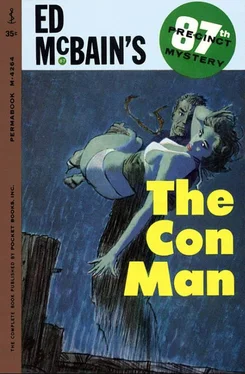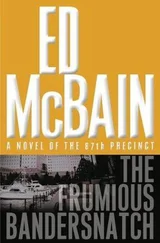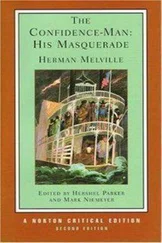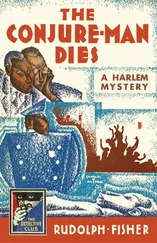This is for my brother-in-law, Howard
Everybody has a right to earn a living.
That’s the American way. You get out there and sweat, and you make a buck. And you invest that buck in lemons and sugar. The water and ice, you get free. You’ve got yourself a little lemonade stand by the side of the road, and pretty soon, you’re pulling in five bucks a week. You take that five, and you buy more lemons and more sugar, and you spot your stands at intervals along the road, and pretty soon, you can’t handle all the business. You hire people to work for you. You start putting the lemonade up in bottles and then cans, and before you know it, you’re freezing the stuff, and it’s being distributed in chain stores all over the country. You buy yourself a big house in the country with a swimming pool and a garbage disposal unit, and you go to cocktail parties where people serve your lemonade with a little bit of gin tossed in for kicks. You have arrived in spades.
That’s the American way, and everybody has a right to earn a living.
The law doesn’t quarrel with man’s inalienable right to pursue the buck. The law only questions the method and means of acquiring the elusive green.
If, for example, your particular penchant is cracking safes, the law may cock a slightly disciplinary eyebrow in your direction.
Or if, for example, you like to hit people on the head and take their wallets, you can’t very well blame the law for looking at you somewhat disdainfully.
Or if, to stretch a point, you make your living by hiring out a gun, your gun, by squeezing the trigger of that gun, by using that gun to actually shoot people — well, really!
You can, after all, be a gentleman about all this. You can, if you figure crime is the quickest, safest, most exciting way of making the most money in the shortest time, go about it like a gent.
You can fool people.
You need not resort to violence.
You need not go out and buy a costly set of burglars’ tools.
You need not acquire a pistol.
You need not draw up complicated plans for getting in and out of a bank.
You need not set up an expensive counterfeit printing press in your basement.
You can remain a gentleman, pursue a life of romantic criminal adventure, see the world, meet a lot of nice people, drink a lot of cool drinks, and still make a lot of money — all by fooling people.
You can, in short, become a con man.
The little Negro girl was very nervous. She was nervous because she was in a police station talking to two detectives. One of the detectives was Negro, too, but that didn’t make her any less nervous. Both detectives were listening to her sympathetically, but that didn’t make her feel any less a fool — and she supposed this feeling of foolishness was what made her feel so nervous.
She had been in the city for two years now. She had come up from North Carolina a long while ago, and she knew she’d looked green at the time, and she knew her speech was not Northern, but that was a long time ago, and she’d thought she was quite cosmopolitan by now, quite the city slicker. Pride goeth before a fall, she supposed, and she sat with her foolishness inside her, and her nervousness breaking out on her hands, which picked lint from the small black purse she carried.
She sat in the detective squad room of the 87th Precinct on a mild day in April. There had been rain just a little while before, and the greenery in Grover Park across the street had shoved its clean, sweet scent onto the air, and the cleanness and sweetness had somehow managed to cross the street and filter in through the grilled windows of the squad room. The squad room did not very often smell sweet. The squad room housed sixteen detectives who, while they were not always all there at the same time, worked hard nonetheless in somewhat cramped quarters. Detectives sweat. That sounds almost sacrilegious because everyone knows only living human beings sweat. But even admitting that some detectives aren’t quite human, let’s be kind and allow that some of them are almost quite living. Which is why the sweet smell from the park was a welcome one on that April day, which had miraculously turned to one of sunshine after a bad start.
“I feel awful silly about this,” the girl said.
“What was your name again, miss?” Kling asked. Kling was a detective/3rd grade. He was tall and blond and somewhat young looking, mainly because he was young. He was the newest detective on the squad, and sometimes, his questions weren’t exactly to the point because he was still learning the art of questioning. Sometimes, too, his questions made him feel a little foolish. So Bert Kling knew just how the young Negro girl in the straight-back chair felt.
“My name is Betty,” she said. “Betty Prescott.”
“Where do you live, Betty?” Kling asked.
“Well, I work for some people in the next state. I’m a domestic, you know? I been working for them for six months now. Mr. and Mrs. Haines?” She made the last a question, and she raised her eyebrows as if expecting Kling to know who Mr. and Mrs. Haines were. Kling did not know. “I’m supposed to be back there now,” Betty said. “Thursday’s my day off, you see. Thursdays and every other Sunday. I generally come into the city every Thursday. Mr. Haines drives me to the station, and then Mrs. Haines picks me up when I come back. I’m supposed to be back now, but I felt I should report this. I called Mrs. Haines, and she said, by all means, I should report it. You see?”
“I see,” Kling said. “Do you keep an apartment in the city?”
“I live with my cousin here. Isabel Johnson?” Again she made the name a question. Kling didn’t know Isabel Johnson, either.
“All right, what happened, Betty?” Brown asked. He had been silent up to this point, giving Kling his head. But Arthur Brown was a detective/2nd grade and a known tendency toward impatience. He was impatient, perhaps, because his name was Brown and the accidentals of birth had tinted his complexion the same color. He had taken a lot of ribbing from fellow Americans over the years and had once considered changing his name to Lipschitz so that the hate mongers could really have a ball. His impatience, as it related to his chosen profession, was sometimes a hindrance, but it crossed a very subtle line into a second character trait, and that trait was doggedness. Once Brown got his teeth into a case, he wouldn’t unclamp his jaws until the nut was cracked. His impatience was a peculiar thing. There was, for example, a detective named Meyer Meyer at the precinct. Meyer’s surname was, of course, Meyer, and Meyer’s father had stuck him with the given name of Meyer so that his offspring emerged as Meyer Meyer. Now, if ever a man took guff because of a handle some unthinking parent had given him, Meyer Meyer was that man. But, in Meyer, the years of guff had led to an almost supernatural attitude of patience. The only crack in Meyer’s veneer of extreme patience emerged in a physical way. For Meyer Meyer was as bald as a cue ball, even though he was a young man. But that’s the way it goes. Two men, two names, two extremes.
Impatiently, Brown asked, “What happened?”
“I got off the train yesterday morning,” Betty said. “I take the eight-seventeen in with Mr. Haines. I don’t sit with him because he’s always talking business with his friends. He’s in public relations?” Again, the question mark. Kling nodded.
“Go on,” Brown said impatiently.
“Well, when we got here to the city, I got off the train, and I was walking along when this man came up to me.”
“Where was this?” Brown asked.
Читать дальше












